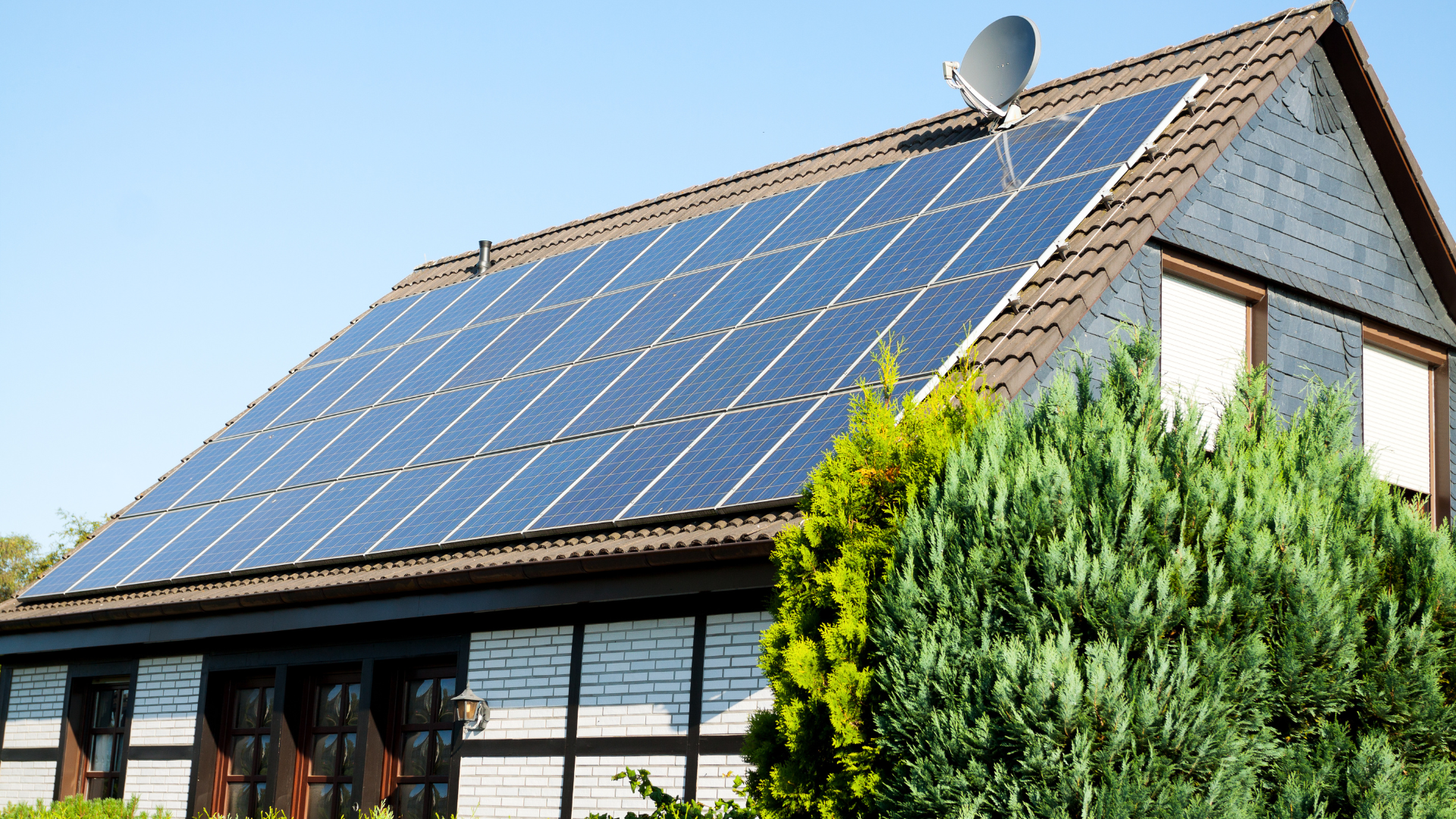The Advantages of Solar Panels in Ontario
Solar panels offer numerous benefits to homeowners and businesses in Ontario. From cost savings to
environmental benefits and energy independence, the advantages of solar panels are significant. In this article, we will explore the key takeaways of embracing solar energy in Ontario and how it can positively impact both the environment and the economy.
Key Takeaways
- Investing in solar panels can lead to substantial cost savings through reduced energy bills.
- Government incentives and rebates make solar panel installation more affordable and attractive for Ontarians.
- The installation of solar panels can increase the overall property value of homes and commercial properties.
- Solar panels contribute to reducing the carbon footprint, making them an environmentally friendly energy solution.
- By harnessing solar energy, Ontario can decrease its reliance on traditional grid power, leading to greater energy independence and sustainability.
Cost Savings
Reduced Energy Bills
Reduced energy bills are one of the primary benefits of solar panels. By generating your electricity, you can significantly reduce your reliance on the grid and lower your monthly energy expenses.
Government incentives, such as the Ontario Solar Rebate Program, provide financial support for homeowners and businesses to invest in solar energy. These incentives can cover a portion of the installation costs, making solar panel adoption more affordable.
Investing in solar panels can also lead to an increase in property value. Studies have shown that homes with solar panels tend to sell for a premium, offering a return on investment in addition to ongoing cost savings.
Government Incentives
Government incentives play a crucial role in making solar panel installation more accessible and affordable for Ontario residents. These incentives can significantly reduce the initial investment required for installing solar panels, making it an attractive option for homeowners and businesses. Additionally, government incentives often include rebates and tax credits, further enhancing the cost-effectiveness of solar energy adoption. It's important to stay updated on the latest incentive programs to maximize the financial benefits of going solar.
- Rebates: Up to 30% of the installation cost
- Tax Credits: Significant reductions in annual tax liabilities
Tip: Research and take advantage of available government incentives to maximize your savings and make the transition to solar energy more affordable.
Increased Property Value
Solar panels can significantly increase property value by providing a sustainable and renewable energy source. Homes with solar panels are perceived as more environmentally friendly and energy-efficient, making them more attractive to potential buyers. Additionally, the long-term cost savings associated with solar energy can contribute to the overall appraisal value of the property. Investing in solar panels can be a smart decision for homeowners looking to enhance the market value of their properties.
Environmental Benefits
Reduced Carbon Footprint
Solar panels offer significant environmental benefits, contributing to reduced carbon footprint and a cleaner, more sustainable energy future. By harnessing the power of the sun, solar panels provide a renewable energy source that reduces reliance on non-renewable resources. This leads to decreased air pollution and helps combat climate change. Additionally, solar energy systems contribute to a more resilient and environmentally conscious energy infrastructure.
- Reduced reliance on non-renewable resources
- Decreased air pollution
- Combatting climate change
Tip: Investing in solar panels not only benefits the environment but also promotes a more
sustainable and eco-friendly lifestyle for homeowners and communities.
Renewable Energy Source
Solar panels are a renewable energy source that harnesses the power of the sun to generate electricity. They are a sustainable and environmentally friendly option for meeting energy needs. Solar panels convert sunlight into electricity through the photovoltaic effect, providing a clean and abundant source of power. This renewable energy source reduces reliance on non-renewable resources and contributes to a more sustainable energy future.
- Solar panels harness the power of the sun to generate electricity.
- They provide a sustainable and environmentally friendly option for meeting energy needs.
- Solar panels convert sunlight into electricity through the photovoltaic effect.
Tip: Investing in solar panels as a renewable energy source can lead to long-term cost savings and environmental benefits, making it a wise choice for homeowners and businesses alike.
Decreased Air Pollution
Reduced Carbon Footprint
Solar panels contribute to reducing the carbon footprint by generating clean, renewable energy.
Renewable Energy Source
Solar panels harness the power of the sun, providing a sustainable and environmentally friendly energy source.
Decreased Air Pollution
The use of solar panels helps in decreasing air pollution by reducing the reliance on fossil fuels for electricity generation.
Tip: Switching to solar energy can significantly reduce harmful emissions and improve air quality.
Energy Independence
Less Reliance on Grid Power
Less reliance on grid power means greater control over energy supply. Solar panels provide a sustainable and reliable source of energy, reducing the vulnerability to power outages. This independence fosters a sense of security and stability, especially during times of high demand or emergencies. Consider the following table to understand the impact of energy independence:
| Aspect | Impact |
|---|---|
| Security | Reduced risk of power outages |
| Stability | Consistent energy availability |
| Control | Greater influence over energy supply |
By embracing solar energy, individuals and communities can take proactive steps toward energy independence. This includes reducing their reliance on traditional energy sources and embracing a more sustainable and resilient energy future.
Sustainable Energy Supply
Solar panels provide a sustainable energy supply that reduces reliance on traditional grid power. This promotes energy independence and ensures a more resilient energy infrastructure. Additionally, solar energy contributes to a cleaner environment by reducing carbon emissions and decreasing air pollution. It also offers a reliable and consistent source of energy, making it a valuable investment for homeowners and businesses alike.
Resilience in Power Outages
Solar panels provide
energy independence by offering a sustainable energy supply during power outages. This ensures
less reliance on grid power and enhances resilience in times of need. Additionally, solar panels contribute to
economic stimulus by reducing the impact of power outages on businesses and households. This promotes a more stable and self-sufficient energy infrastructure.
Job Creation
Growth in the Solar Industry
The growth in the solar industry has led to increased job opportunities. Installation and maintenance jobs have seen a significant rise, in employment in the renewable energy sector. This growth has also contributed to economic stimulus through the creation of new businesses and investment in solar technologies. As the solar industry continues to expand, it is expected to generate more employment opportunities and contribute to overall economic development.
Tip: Investing in solar energy can not only benefit the environment but also create job opportunities and stimulate economic growth.
Installation and Maintenance Jobs
Solar panel installation and maintenance jobs play a crucial role in the growth of the solar industry. These jobs provide opportunities for skilled workers to contribute to the expansion of renewable energy infrastructure.
- Skilled Electrical Contractors and laborer is in high demand for solar panel installation and ongoing maintenance.
- The growth in installation and maintenance jobs contributes to the economic stimulus in the region.
Tip: Pursuing training and certification in solar panel installation can lead to rewarding career opportunities in the renewable energy sector.
Economic Stimulus
The solar industry's growth is creating new employment opportunities and economic growth opportunities. Installation and maintenance jobs for solar panels are in high demand, providing sustainable employment in the renewable energy sector. This growth also contributes to economic stimulus by fostering innovation and investment in clean energy technologies.
- The solar industry offers diverse career paths, including engineering, project management, and technical support roles.
- Job creation in the solar sector supports local economies and contributes to a more resilient and sustainable workforce.
Tip: Investing in solar energy not only creates jobs but also promotes a more sustainable and resilient economy for the future.
Conclusion
In
conclusion, the adoption of solar panels in Ontario offers numerous
advantages. From significant
cost savings and positive
environmental benefits to increased
energy independence and
job creation, the transition to solar energy presents a promising future for the province. With reduced energy bills, government incentives, and increased property value, homeowners and businesses can benefit financially. Moreover, the environmental benefits, including a reduced carbon footprint, renewable energy sources, and decreased air pollution, contribute to a more sustainable and eco-friendly environment. Additionally, the move towards energy independence provides less reliance on grid power, a sustainable energy supply, and resilience in power outages. Lastly, the growth in the solar industry, along with installation and maintenance jobs, brings about economic stimulus and job opportunities.
Overall, the advantages of solar panels in Ontario are clear, making it a compelling choice for a greener and more sustainable future.










